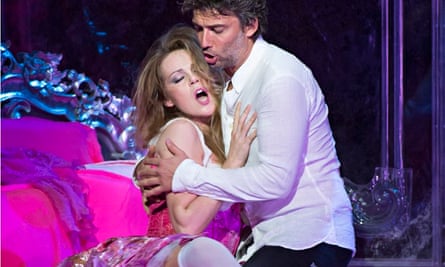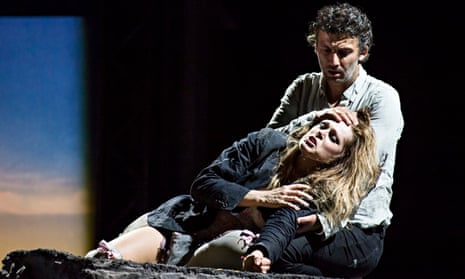It's more than 30 years since the Royal Opera's last new staging of the work that brought Puccini his first success. Productions of Manon Lescaut may not be as rare as that might suggest – Jonathan Kent's version follows one at Welsh National Opera earlier in the year – but like La Fanciulla del West, it's still a piece that's closer to the edge than the core of the standard repertory.
Musically, Covent Garden has done the work proud, and the quality of the performance is defined in the pit. Antonio Pappano has few peers today as a Puccini conductor, and gives the score a tremendous sense of vivid theatricality; the energy he injects into the finale of the second act is irresistible, while the following orchestral intermezzo, surely the world of Wagner's Tristan heard through Puccini's ears, is firmly fixed as the opera's emotional heart.

The cast could hardly fail to respond to such encouragement, and after a slightly subfusc start, all of them did. Kristine Opolais manages Manon's transformation from good-time girl to tragic victim wonderfully well, using silvery pianissimos to marvellous effect, and while Jonas Kaufmann may not be the most vulnerable or moving Des Grieux - he is a bit too confident and self-contained for that - his singing, which seems to gain in weight and richness every time he appears here, is exceptional. As Lescaut, Christopher Maltman has just the right mix of cunning and charm; Maurizio Muraro is the insidiously predatory Geronte.
Kent's production, though, is less convincing. The designs, by Paul Brown, bring the action up to the present day, to a world of wheelie bins and people-carriers; the inn in Amiens becomes a bouncer-guarded gaming club, Geronte's Paris house takes on the lurid kitsch of the red-light district of Amsterdam or Hamburg as Manon entertains a row of elderly men with a film crew on hand to record her gyrations. The parade of deportees at Le Havre becomes a reality TV show, with ship's captain a tuxedoed emcee, while the last act takes place on a crumbling motorway bridge, literally a road to nowhere. Each on its own is a telling image; whether they tell us anything about the opera is another matter.

Comments (…)
Sign in or create your Guardian account to join the discussion